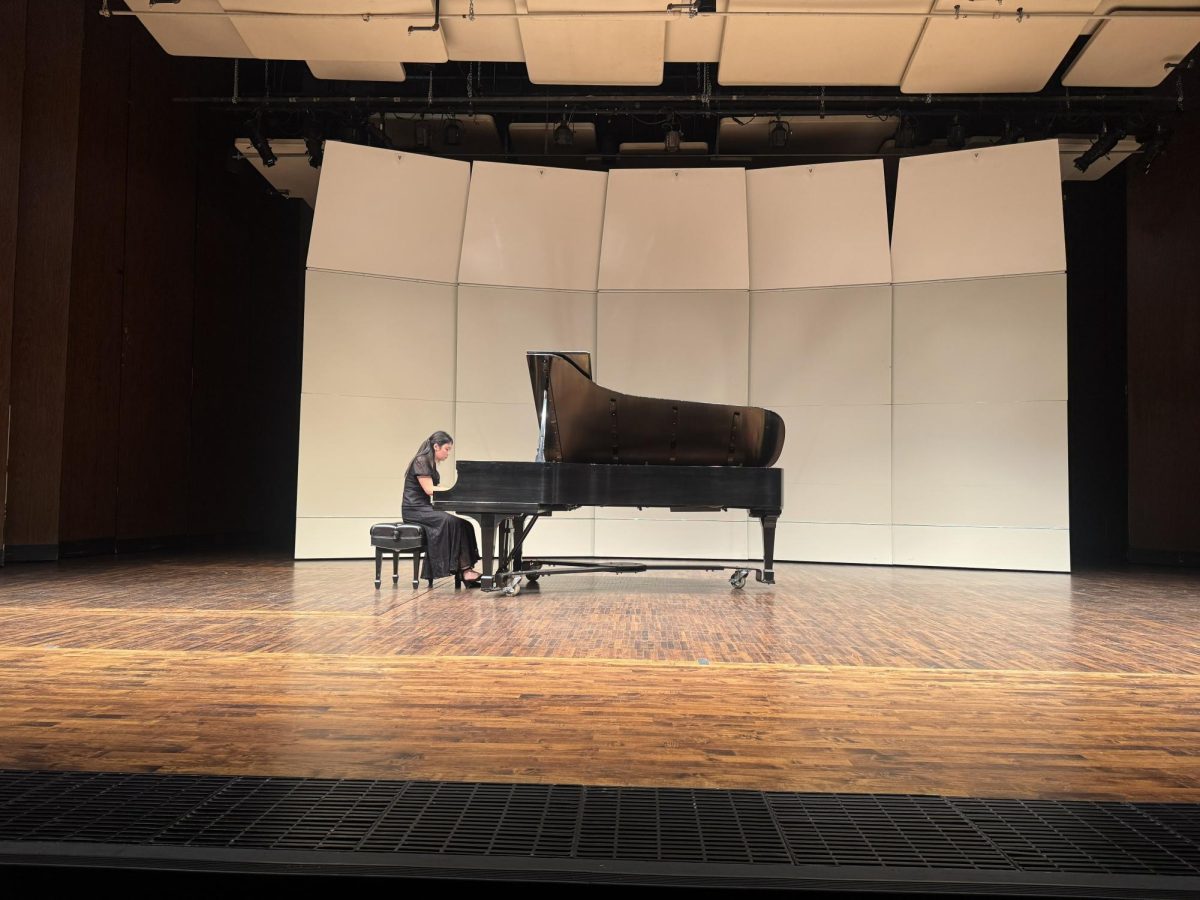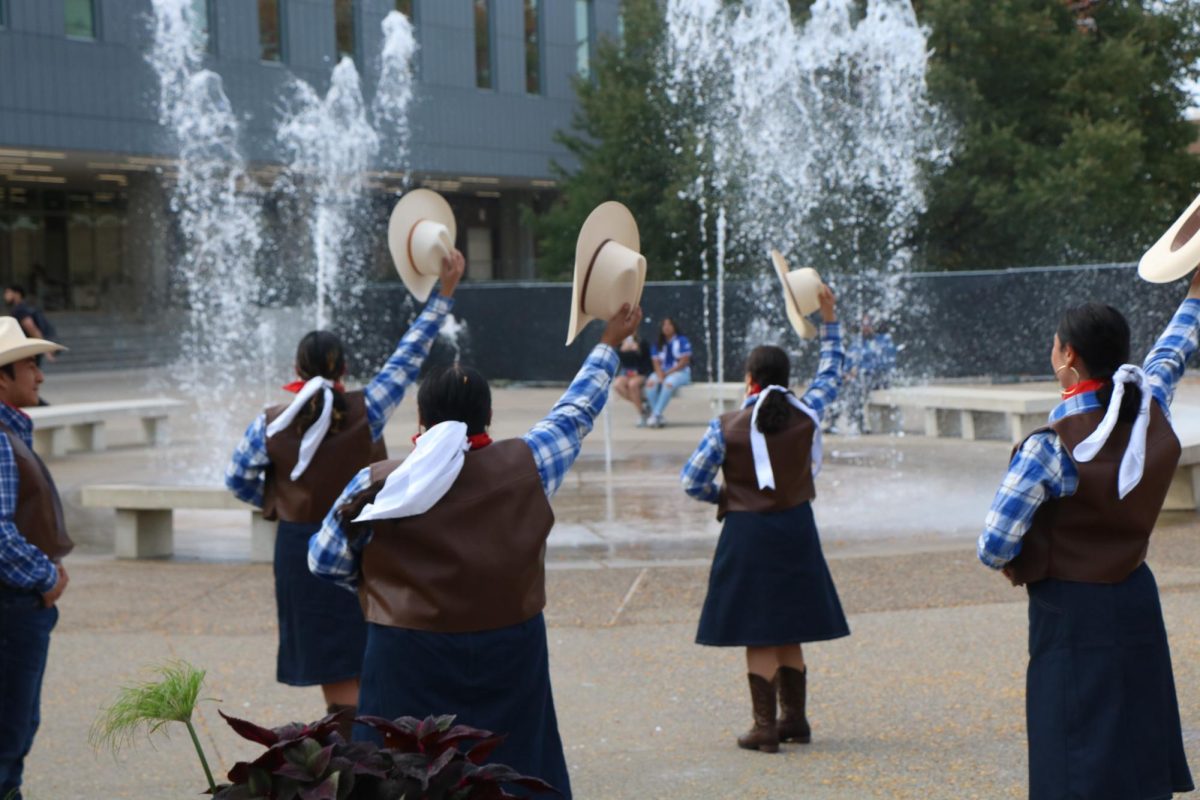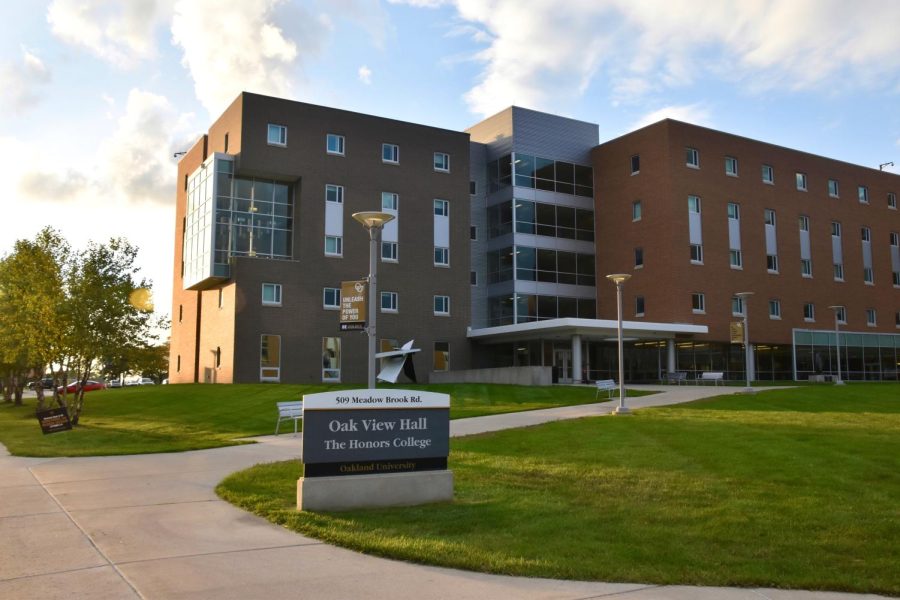On Thursday, Sept. 28, President Ora Pescovitz spoke at Oakland University’s annual State of the University Address at Varner Hall, recognizing the university’s recent accomplishments and subsequent objectives.
Pescovitz began the address by recognizing those in attendance, including OU’s Charter Class, which is celebrating its 60th class reunion this year. She then discussed current priorities, enrollment, budget, rankings and affordability.
Current priorities
Pescovitz listed many priorities for OU this academic year. She said the university wants to improve student success, increase student retention and maintain a safe and healthy campus.
OU also wants to recognize and support its faculty by acknowledging excellence in teaching, community engagement and research.
Pescovitz states the university intends to pursue these priorities through external funding, which reached a record of $28.9 million in fiscal year (FY) 2023. Pescovitz also reported the total annual funding more than tripled, and research funding has doubled since 2019.
OU is also focusing on creating an artificial intelligence task force, as Pescovitz says the university must be ready for inevitable change.
“Under the leadership of Deans Louay Chamra and Graeme Harper, a new task force will consider the impact of AI,” Pescovitz said. “The task force will consider the ethical guidelines, resource allocation and ongoing monitoring and adaptation of this new technology.”
Stabilized enrollment
After dealing with the challenges of the pandemic and declining enrollment in recent years, Pescovitz is encouraged by current trends and states enrollment has stabilized at nearly 16,000 students for FY2024.
She is also pleased to report the one-year retention rate for underrepresented minority students (URM) increased by 5%, and the gap between URM and non-URM students has reduced by 5%.
However, Pescovitz remains mindful of emerging trends in higher education, including a decreasing number of high school graduates and an increasing demand for online and hybrid learning.
Pescovitz says OU is committed to understanding the implications of these trends and is acting strategically to mitigate the impact they could have on retention and graduation rates.
Balanced budget
Despite decreasing revenue due to declining enrollment in previous years, Pescovitz reported the 2023-24 budget is balanced.
The president stated this was made possible due to stabilized enrollment and the second of a three-phase across-the-board 10.4% budget reduction. Phase three will be complete in the current FY.
Pescovitz also credited the “Strive for 45” campaign that helped increase state appropriations “floor funding” for OU and several Michigan universities, giving OU an additional $11.5 million in FY2024.
Those who took part in the success of the “Strive for 45” campaign received thanks from Pescovitz.
“Thank you to Governor Whitmer for her leadership, and special thanks to higher education appropriation subcommittee chairs, Representative Samantha Steckloff and Senator Sean McCann, for their passionate support of higher education,” Pescovitz said.
“And thank you to our Vice President of Government Relations, Rochelle Black, for her hard-working team, and thank you also to our trustees and to so many of you who were an integral part of our successful advocacy efforts.”
The WSJ’s Best Colleges Ranking
On Sept. 6, The Wall Street Journal released a ranking of the best colleges in the U.S.
OU ranked 189, the highest among its peer institutions in Michigan, including Grand Valley State University (294), Central Michigan University (313), Western Michigan University (341), Wayne State University (347) and Eastern Michigan University (358). OU is also ranked as the best value for investment among these universities.
Additionally, OU ranks first among public universities in Michigan for enhancing social mobility and ranks second after the University of Michigan-Ann Arbor in preparing students for careers.
Affordability
Pescovitz says the balanced budget reflects sound fiscal management, ensuring an OU education is accessible and affordable.
19% of OU undergraduates and 43% of the incoming first-year class will have their tuition fully covered. 74% of incoming first-year students whose family incomes are less than $70,000 will have their tuition covered by the Golden Guarantee, and 57% will have their tuition and on-campus housing covered.
56% of undergraduate students leave OU with no student debt. OU students who graduate with student debt repay their tuition in only one year and seven months — the second-fastest among all public universities in Michigan.
The OU Career and Life Design Center also reports that 72% of graduating seniors find employment within a year, and 86% said they had at least one paid internship.
Closing statement
Pescovitz ended the State of the University address by saying she looks forward to witnessing the next chapter in OU’s history. She believes the campus community will make a difference in the lives of students, faculty, staff and alumni.
“We need look no further than the founder of our university, Matilda Dodge Wilson, for the inspiration to shape the future with a pioneering spirit. Matilda said, ‘To attempt great things is to expect great things.’ May each of us heed her timeless advice,” Pescovitz said.












Another suspicious prof • Oct 16, 2023 at 1:29 PM
“OU also wants to recognize and support its faculty by acknowledging excellence in teaching, community engagement and research.”
I have an unusual suggestion: convert recognitions and acknowledgments into something less insulting than a <2% "merit raise" and a cost-of-living salary adjustment.